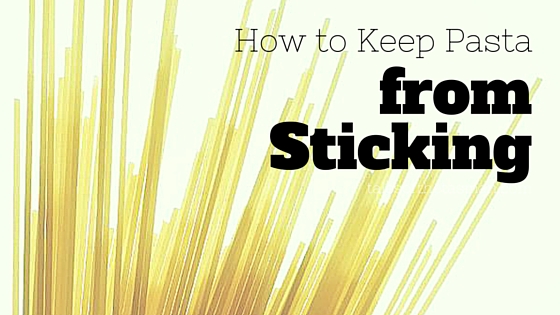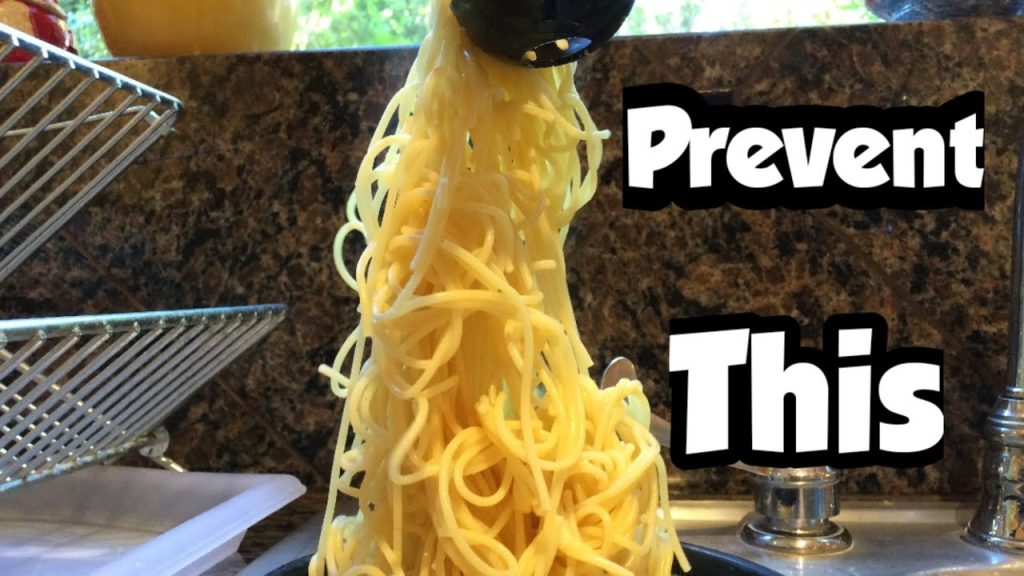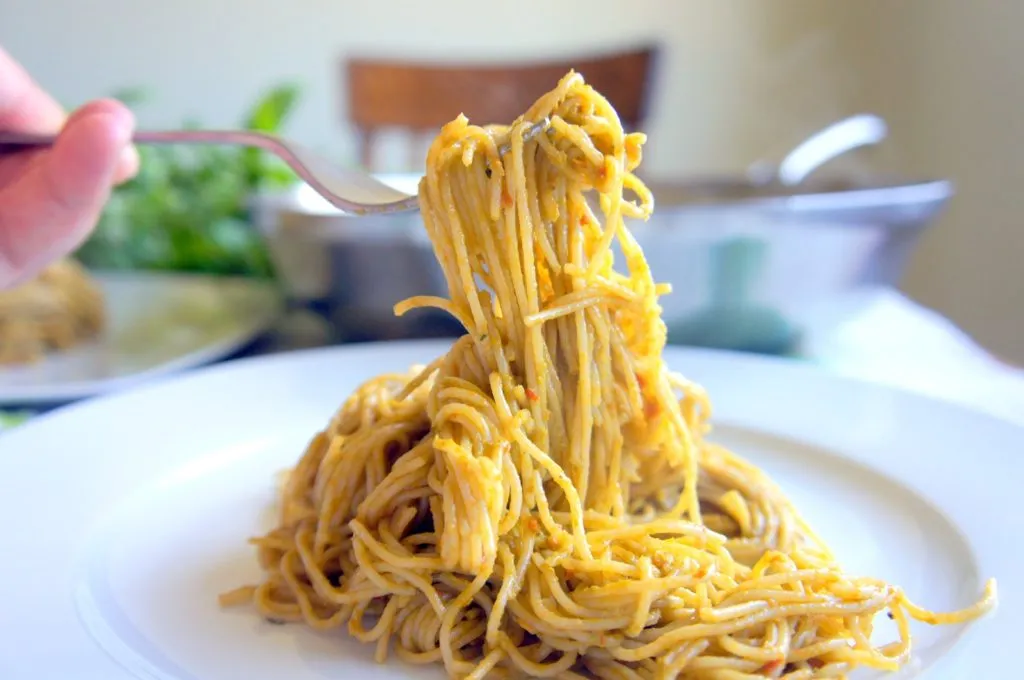How to Make Pasta That Doesn't Stick?

Pasta is a dish that we all appreciate. It is one of the marvelous things that Italian cuisine has to offer. It comes in various forms and sizes, and you can build it yourself.
Pasta is a staple in our diets. We periodically dress it up with sauces and other ingredients to create a delicious dish. However, the pasta must be cooked appropriately before adding anything else.
Several techniques can help your pasta cook to perfection. It all starts with bringing the water to a boil and then cooking the pasta.
It may appear to be a simple task. However, there are other factors to consider. Also, and this is crucial, pasta does not need to stick at times, including while you’re cooking, in the pot, and afterward.
What are the most effective methods for preventing spaghetti from sticking together? When it comes to making pasta, there are a few things to consider. Pasta can get sticky and mushy if not cooked properly.
We came up with several suggestions, including letting the water boil before adding the pasta, using enough water, properly stirring, and using the correct quantity of oil.
Additionally, since pasta can become sticky in the pot, and after cooking, properly draining the pasta, breaking it before boiling, and adding olive oil after it’s cooked will help prevent this.
To learn more, continue reading.
How do I make pasta that doesn’t stick?

Pasta can be prepared in a variety of ways. They all have specific ideas and tricks that you may use to make the ultimate pasta dish.
You want the pasta to be nicely boiled and soft enough to incorporate into your sauce. However, if the pasta isn’t cooked correctly, it can cling together, a problem that will have to be dealt with.
That is why, if your pasta becomes sticky, we have suggested solutions. Continue reading to learn more about them, as well as to keep them from sticking once they’ve been cooked.
1. Bring a pot of water to a boil before adding the pasta.
The first and most crucial thing to remember is that the water must boil before the pasta can be placed inside to cook.
If you add it before the pasta is cooked, it will stay in the warm water for an extended period, which is terrible for its structure. Additionally, if the water is not extremely hot and boiling, the pasta will become sticky and unfit to consume.
2. When preparing pasta, make sure you have plenty of water.
It’s also worth noting that it’s critical to use plenty of water when boiling pasta. When choosing a pan, make sure it’s large enough to accommodate the amount of pasta you’ll be making.
One of the reasons pasta sticks is because of this. The pasta is cooked with insufficient water, and no leaching scratches in the water. If you’re working with a smaller pot, use less water and stir more often.
3. While the pasta is cooking, keep stirring it.
To cook the perfectly boiled pasta, keep stirring. Stir the spaghetti while it’s cooking to keep it from becoming sticky. This is particularly important during the first two minutes after adding the pasta to the pan. The spaghetti may stick to the bottom of the pan if you don’t stir it.
4. Don’t overdo the oil in the spaghetti.
Although oil can make pasta less sticky, it can also make it slick. You won’t add sauce this way so that the spaghetti won’t stick together. Without the sauce, your pasta will be less flavorful and may become mushy.
How can you keep your pasta from sticking together after it’s been cooked?

It’s also crucial to understand how to keep the spaghetti from sticking together once it’s been cooked. Follow the steps below to prevent your spaghetti from sticking together in the future.
5. Set aside to drain the pasta
Place the colander in the sink and run the water through it if you want the pasta to be well-drained. Put the pasta in the saucepan with the sauce as soon as possible. This will prevent the spaghetti from becoming sticky as it cools.
6. Before cooking, break the pasta.
If you’re making spaghetti or something similar, break it up beforehand. You can always add oil after the pasta is cooked to keep it from sticking.
How can I keep the pasta from sticking to the pot?
7. Pour in the olive oil.
Using olive oil in the water while the pasta is cooking is the most excellent technique to avoid sticky pasta in your pot. Pasta should not cling together when properly cooked.
Also, the simplest way to tell if the pasta is done is to place it against the pot’s wall and see if it sticks. If it does, it’s ready to eat.
Associated Issues
When the spaghetti is cold, how do you keep it from sticking together?
In a pot of salted boiling water, cook the pasta. Drain it in cold water after being cooked for around 7 minutes. Ensure the pasta is cooked al dente to prevent it from sticking together.
What’s the best way to keep pasta warm without it sticking?
Toss in the olive oil and toss the spaghetti to combine everything. While the spaghetti is still warm, the oil will keep it from sticking. In addition, the steam will keep the pasta wet and ready to eat.
What is the best way to keep the pasta from sticking overnight?
Olive oil can be stored in a bottle or a bag. Alternatively, a tiny bit of butter can be added. This will keep the spaghetti from sticking together when stored for later usage.











